Bengali egg and potato curry. It is hard to imagine how anyone could have totally escaped coverage of the current ‘cost-of-living’ crisis in the media, with inflation forecast to hit a 40 year high by the end of the year. Not only has this increased the cost of putting fuel in our cars and heating our homes, we have also seen a significant increase in the cost of our weekly shop. This got me thinking. Most of us will have seen articles in certain sectors of the media about people claiming that ready-meals were the only way they could afford to feed their family under current circumstances. Don’t get me started on that one.
Unfortunately, this is not unique to the current economic situation and neither is it a recent phenomenon. Now, I am not about to embark on some crusade, in the vain hope that we at the Nosey Chef can change the generationally ingrained dietary habits of a nation overnight. There are plenty of other people willing to take on that particular mantle. However, I am assuming that if you are reading this article, you regularly follow our posts or have recently joined us, because you possess something that unites us, an interest in food and cooking. So I am writing this article as a foodie to a target audience of fellow foodies, or at least those of you who vaguely care about what you eat.
Many years ago when I lived and worked in Devon, my lunchtime running route from the dockyard took me through the most socioeconomically deprived area of the city. Every day I ran past a tiny, nondescript premises that passed for the local shop. I am not entirely sure what the extent of its range of produce was. However, outside were piles of 25Kg bags of potatoes and trays of eggs, with a small chalkboard sign that read ‘tray of eggs and bag of spuds £2.’ My initial response was to dismiss this as another example of the poor British diet – imagining families tucking into greasy plates of fried egg and chips every night. Then I started to think beyond this. Even a diet of egg and chips had to be better than any ready-meal alternative, for a whole host of reasons, and people were buying the eggs and potatoes, at least they were cooking for themselves. Furthermore, I had no proof that fried egg and chips was the full extent of these people’s culinary repertoire.
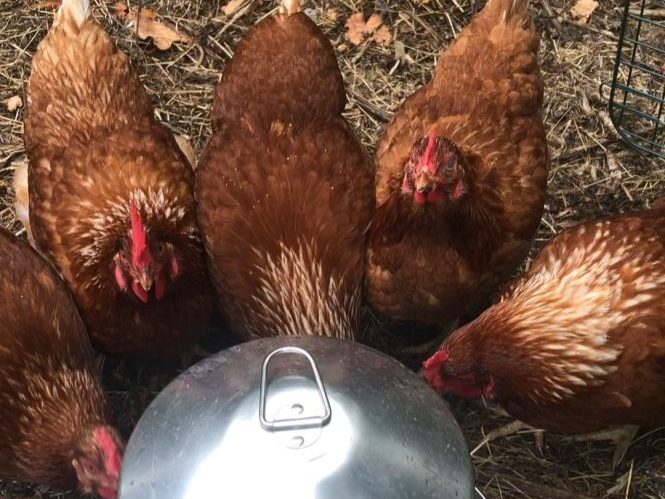
Like everyone, I have seen a significant increase in the cost of the family’s weekly shop, and have been looking at ways to reduce it. This has included growing more of our own fruit and veg, and most recently the acquisition of 6 hens, all of which are now laying to the extent that we no longer have to buy eggs. I promise you, this is not about to turn into some pious article extolling the virtues of The Good Life (for those of you too young to remember the, suburban exploits of Surbiton residents, Richard Briers and Felicity Kendal aka Tom and Barbra Good, then there is always Google). Anyway, as my wife kindly pointed out – puncturing the little balloon of smugness in which I was sitting – given the cost of the initial outlay (no pun intended) it will be at least 2 years before our hens will have paid for themselves, and currently each of our eggs has a price tag of about £10. The point of this article is, however, about using affordable and available ingredients to put a balanced and nutritious meal on the family table. Egg puns aside, as far as readily available ingredients go, they don’t come much more so than potatoes – something else we managed to grow in abundance this year – which pretty much brings us back full circle to small shop I used to run past every day about 15 years ago.
So, most of you probably already have the main ingredients for this dish, without making a special trip to the shops, and if you happened to live in Plymouth in 2007, they will have only cost you a couple of quid. When it comes to vegetarian food I have enduring happy memories of travelling with my wife through Rajasthan 20 years ago BC (before children). Aside from a scheduled stop for a few days by the Hindu holy lake at Pushkar – the site is so spiritual that it not only is it meat-free, it is also fish and egg-free, i.e. vegan – we ate a lot of vegetarian food. Whilst meat was readily available on the menu in most places we visited, my eyes were opened to the endless possibilities of delicious meals that could be prepared using vegetables alone. Interestingly the introduction of the potato into the Indian diet, by the East India Trading Company at the height of the British Empire, is an episode of food history entirely of its own. As a result of my experiences, when cooking vegetarian food I frequently turn to the Indian sub-continent for my inspiration. So, it is no surprise that I discovered this recipe in my well-thumbed copy of 30 Minute Curries by Atul Kochhar. The dish is a simple everyday staple from the Bengal region in north-eastern India. As we have mentioned previously – following our attendance at one of Atul’s fantastic cookery courses – the type of fat used, commonly defines the characteristics of the food from the various regions across the sub-continent. Vegetable oil predominates in the north, with its high smoke-point which allows higher temperatures to be reached in the pan before it breaks down. This in turn means greater extraction of the aromatic chemicals in the spices used, which leads to dishes with robust flavours. The reverse is true in southern regions where fats such as coconut oil, with a very low smoking point predominate, and the flavours are hence that much more subtle.
So if you are looking for something to cook that is economical, flavourful and easy to prepare using things you already have in your larder, whether you choose to grown them yourself or not, then this really does tick all of the boxes. Did I tell you I also grew the onions and made my own passata using tomatoes from the greenhouse? Sorry. Given that this dish already contains large amounts of both protein and carbohydrate, it really is a true one-pot wonder, which doesn’t necessarily require the accompaniment of rice and flatbreads, giving you more time to tend your chickens and water the vegetable garden.
Dimer aloo johl
Ingredients
- 4 eggs
- 8 well-scrubbed new potatoes
- 4 green cardamon pods
- 1 small onion
- 2 tbsp vegetable oil
- 2 dried bay leaves
- 1 cinnamon stick
- 2 cloves
- 2 tbsp onion paste
- 1 tsp ground turmeric
- 1/2 tsp red chilli powder
- 600ml water
- 4 tbsp passata
- Fresh coriander leaves
- Quarter tsp garam masala
Instructions
Soft boil the eggs using your preferred method for 5 minutes, remove and set aside in iced water to cool.
While the eggs are boiling cut the potatoes into 1/2 cm slices. Lightly crush the cardamon pods to release the seeds, then peel and thinly slice the onion.
Heat the oil in a sauté pan and stir the bay leaves and cinnamon stick around to flavour the oil. Add the cloves and cardamon pods and stir until they crackle, then add the sliced onion and soften without colouring.
Add the onion paste and stir for 30 seconds before adding the potatoes. Season with salt before adding the turmeric powder and chilli powder, stirring for 30 seconds to cook the spices without burning.
Add the water and the pasta. Bring to the boil before leaving to bubble for 10–12 minutes to cook the potatoes slices till tender.
While the gravy is simmering shell the eggs under running water before setting aside. Chop a good handful of coriander, reserving some whole leaves to garnish.
When the potatoes are cooked, halve the eggs and add then to the gravy, along with the garam masala and the chopped coriander. Simmer for a minute to combine the flavours, season with salt, and serve garnished with whole coriander leaves.
Notes
Onion paste is made by cooking sliced onions with a good pinch of salt in vegetable oil, for about 20 minutes without browning, before adding in a spoonful or two of garlic and onion paste – see notes in our Rogan josh Atul Kochhar recipe). The whole lot is then whizzed up in a blender. It pays to make more than you need and then spoon out in Tbsp aliquots onto a baking sheet for freezing. The frozen tbsp-sized dollops can then be stored in a bag in the freezer for future use.

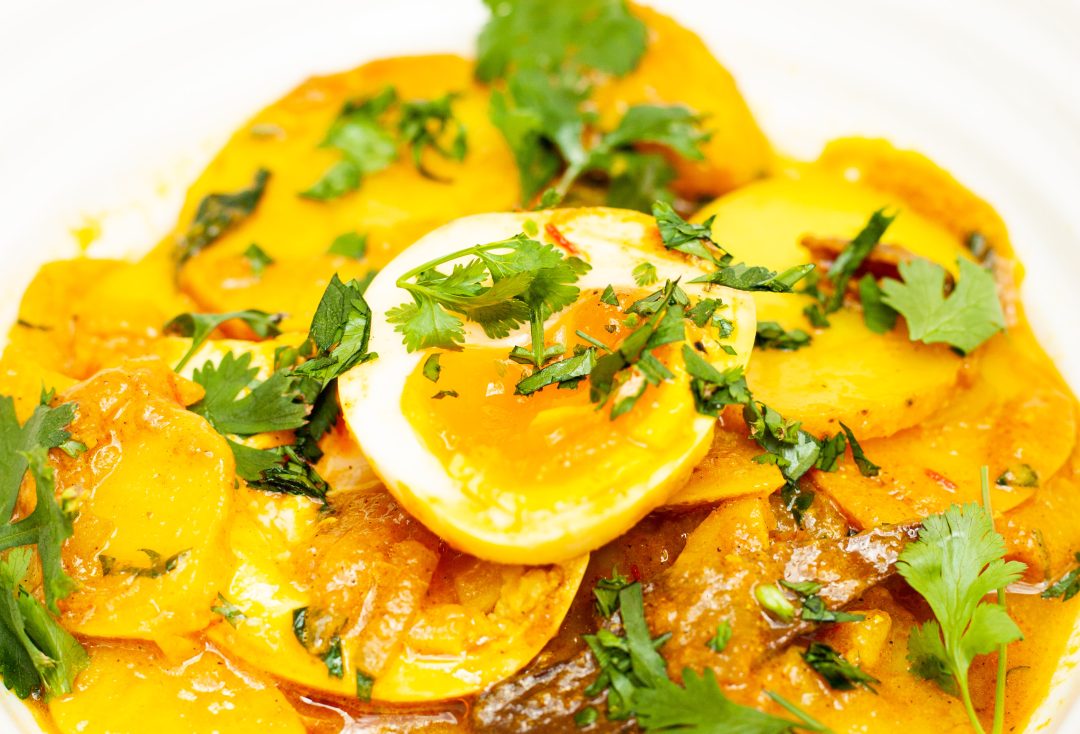
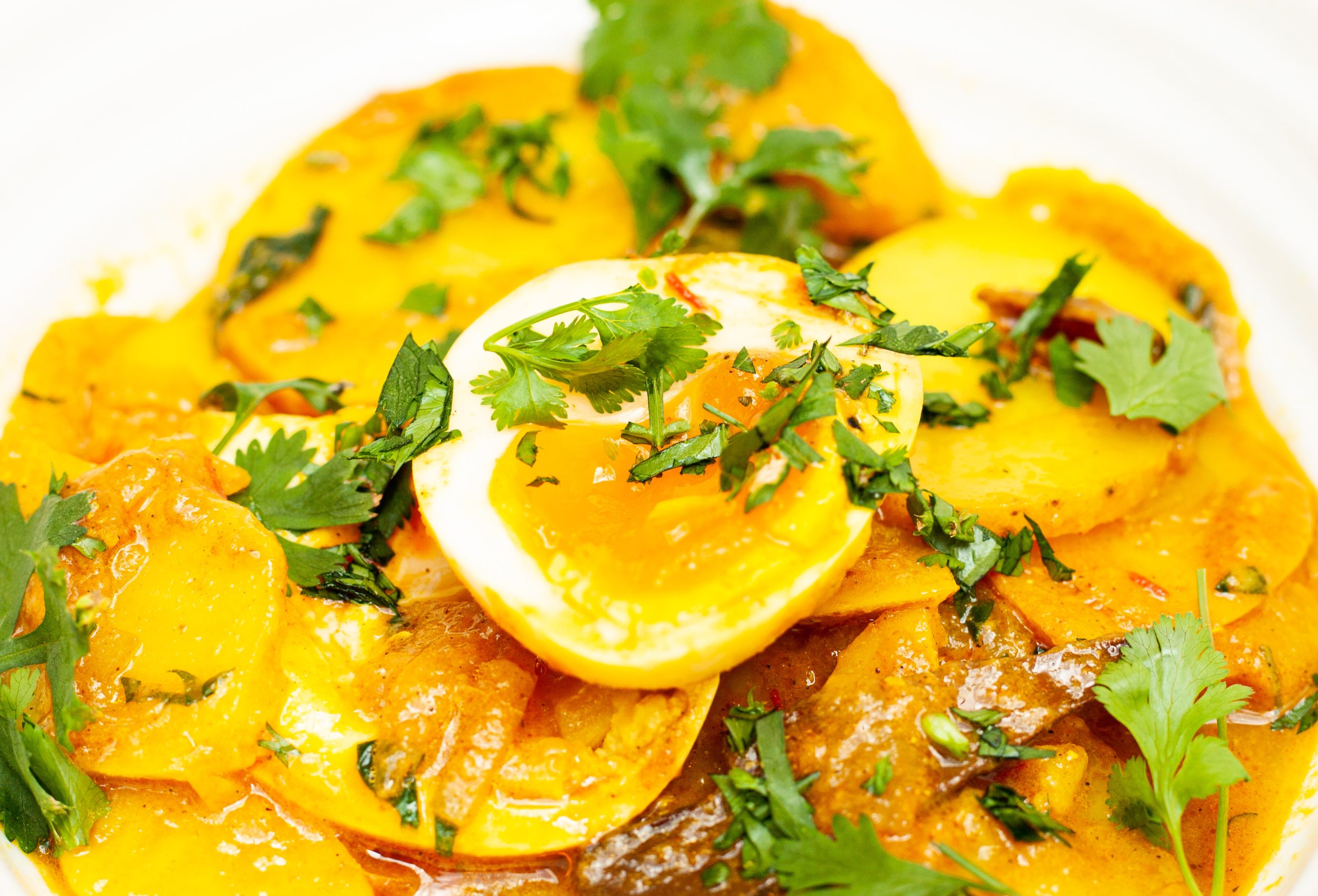

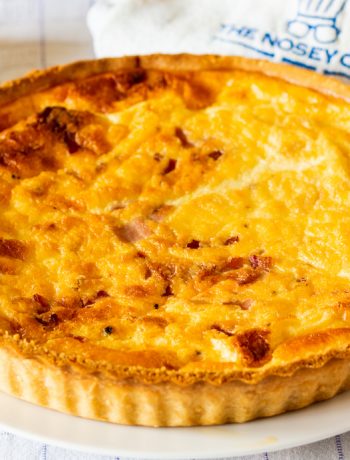
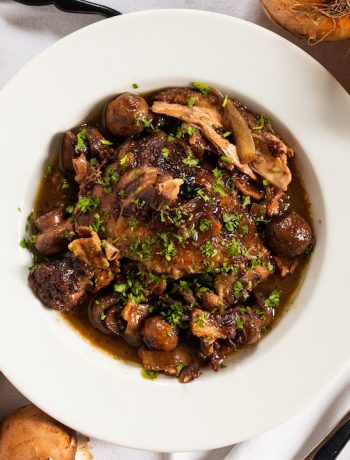
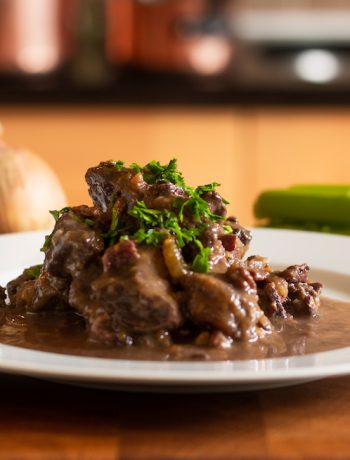
No Comments